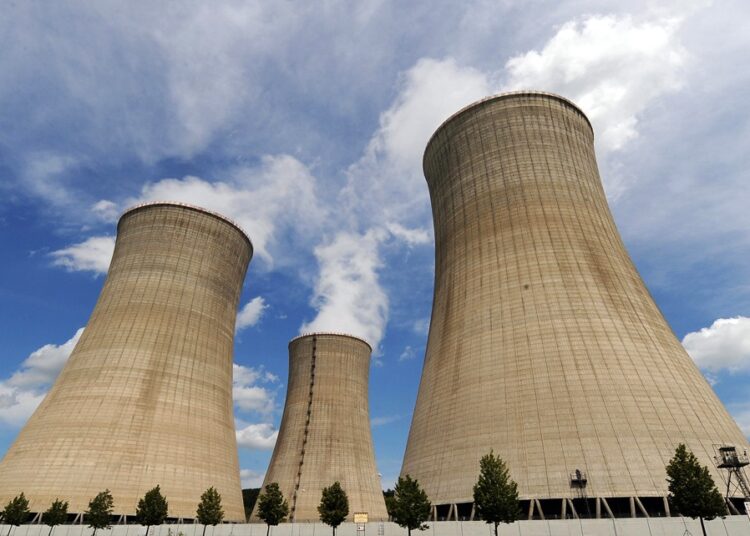By Hamed Mahmoud
Sustainable and clean energy supplies have been on top of every country’s agenda in recent decades as the world aims to avoid carbon-inducing, expensive sources currently in use. With climate change as an undeniable threat, the need to transition to clean, reliable energy sources hasnever been more urgent. Nuclear power, alongside renewable energy technologies including solar, wind, and hydropower are currently at the forefront of the race to develop and obtain alternatives as they emit extremely little amounts of CO2 per unit of energy production. However, nuclear energy has so far proven to be the safest, environmentally friendly, and cost-efficient, despite its higher initial cost.
As far as economics are concerned, it is a fact that building a nuclear power plant has a significantly high initial cost of around $6 billion for each 1,100 MW plant. However, one nuclear plant is able to operate for 60-80 years generating cheap reliable energy while requiring exceptionally low operation costs. Moreover, the resulting nuclear power will not be subject to price fluctuations experienced by traditional energy produced from fossil fuel like oil, coal, or natural gas.
Moreover, nuclear power technologies are also proving to be safer; Bill Gates, who is the Chairman of TerraPower, a company working towards providing a more affordable, secure, and environmentally friendly form of nuclear energy, observed in an interview with 60 Minutes that “Nuclear power can be done in a way that none of those failures of the past would recur, because just the physics of how it’s built.” The risk of accidents in nuclear power plants continue to decline, when compared to other energy sources, like non-renewables, the production of energy using nuclear reactors is considered among the safest forms of power generation; in fact, nuclear power evidently saves lives as it is emission free and doesn’t require mining, like coal. Numbers from Our World in Data (OWD) also show that nuclear energy and renewables are far safer than fossil fuels; according to a post titled Energy and CO2 and Greenhouse Gas Emissions, OWD state that nuclear energy, results in 99.8% fewer deaths than brown coal; 99.7% fewer than coal; 99.6% fewer than oil; and 97.5% fewer than gas.
Globally, electricity generated from nuclear reactors has seen an increase for the seventh consecutive year back in 2019, as electricity output reached 2657 TWh, a 95 TWh increase on the previous year. As the world works to find solutions to halt climate change, transitioning to nuclear energy will continue to gain more credibility and remain a priority to regulators. Nuclear energy currently stands as the world’s second largest source of low-carbon electricity behind hydropower. Using around 440 power reactors, around 10% of the world’s electricity comes from nuclear; it provides France with more than 70% of its electricity supply, and over 40% of Sweden’s. As far as the Middle East is concerned, six countries are moving forward with the construction of nuclear reactors, including Iran, the UAE, Turkey, Egypt, Saudi Arabia, and Jordan. The year 2015 saw Egypt sign an agreement with Russia for the construction of four VVER-1200 reactors by Rosatom, which will be developed in El Dabaa, located within the governorate of Matrouh. While the NPP construction license is expected to be issued by the nuclear regulatory authority within 2022, construction of administrative buildings and personnel residential area has been underway.






Discussion about this post